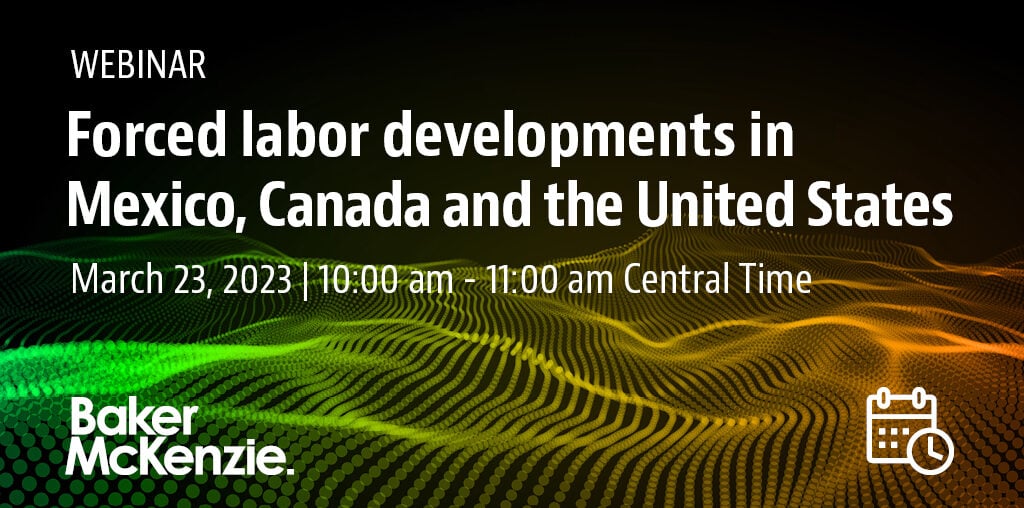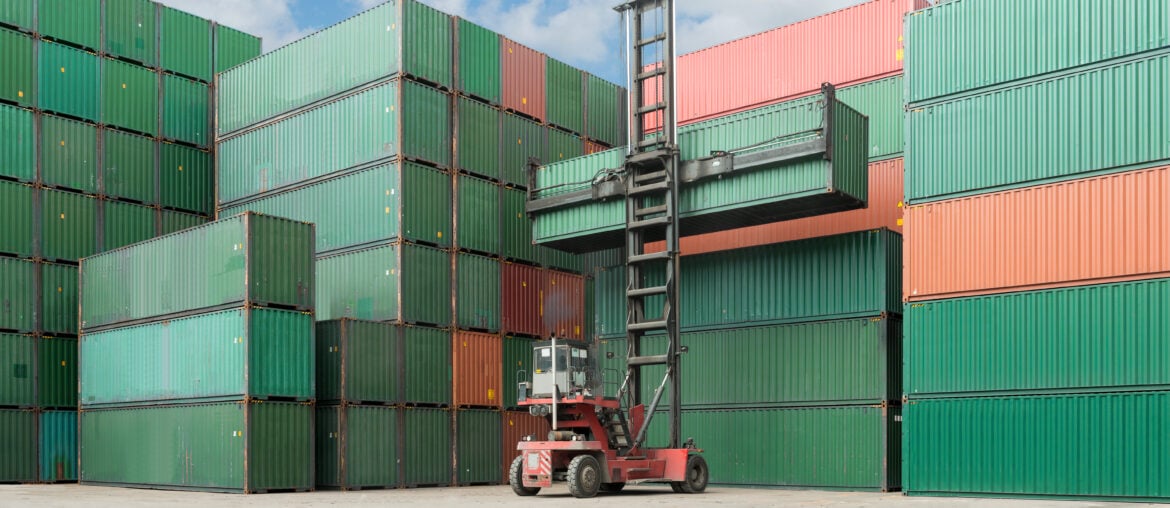On 13 March 2024, the European Council and European Parliament agreed the final text of the proposed EU Forced Labour Regulation (“Regulation“). This follows negotiations between the EU Council and Parliament which took place on 22 January 2024 and the European Council and European Parliament reaching a provisional agreement on the Regulation on 5 March 2024. The European Commission had initially proposed the Regulation on 14 September 2022. For information on the key similarities and differences between the existing US…
The EU has held political talks on a law that will ban the sale on the EU market of products made with forced labour, as well as the export of such products from the EU. On 22 January 2024, the EU Council and Parliament held negotiations to agree the final text of the regulation, the proposal for which was published by the EU Commission in September 2022. The Committee on International Trade and the Committee on Internal…
On December 20, 2023, Public Safety Canada launched its online filing portal and issued guidance with respect to the novel annual supply chain transparency reporting requirement pursuant to the Fighting against Forced Labour and Child Labour in Supply Chains Act (the Act), which comes into force on January 1, 2024 (Guidance). The Guidance provides information on the format and filing process for the annual report, the substance of the annual report and the interpretation of the Act. The first reports are due…
On Monday 16 October, the Internal Market and International Trade committees of the European Parliament adopted their position on the European Commission’s proposal for a Regulation introducing a ban on the placing and making available on the EU market, or export from the EU market, of products made using forced labour (published on 14 September 2022). The following amendments have been proposed: Reversal of burden of proof in high-risk cases – for goods produced in…
In lieu of our annual conference in Bellevue, WA, we are excited to again provide a Virtual Global Trade Conference available to all our clients and friends worldwide! The conference will be comprised of 90 minutes sessions over the course of two days. Join us on July 12 and 13 for any or all of the sessions and learn from our panel of experts as they share their insights on cutting-edge trade trends, regulatory updates and challenges,…
This article provides an overview of the global rise in human and labour rights legislation linked to trade measures. In particular, it examines: Canada’s efforts to enforce the existing import prohibitions on goods mined or manufactured with forced labour under the Customs Tariff; Compliance under the recently passed Bill S-211, Fighting Against Forced Labour and Child Labour in Supply Chains Act and to amend the Customs Tariff which comes into force on January 1, 2024;…
Join us for a webinar on Forced labor developments in Mexico, Canada and the United States on Thursday, March 23, 2023 from 10:00 am – 11:00 am Central Time. In this webinar, our panelists will discuss Mexico’s implementation of the new Forced Labor Regulation, Canada’s implementation of supply chain transparency legislation, US forced labor enforcement trends, customs forced labor best practices and supply chain due diligence recommendations. Click here to register.
Después de mucha expectativa desde la entrada en vigor del Tratado entre México, Estados Unidos y Canadá (“T-MEC”), el 17 de febrero de 2023, la Secretaría de Economía publicó en el Diario Oficial de la Federación un Acuerdo que establece las mercancías cuya importación está sujeta a regulación a cargo de la Secretaría del Trabajo y Previsión Social (el “Acuerdo contra Trabajo Forzoso”), que prohíbe la importación de bienes producidos mediante trabajo forzoso. El Acuerdo…
After much anticipation since the United States-Mexico-Canada Agreement (“USMCA”) entered into force, on February 17, 2023, the Ministry of Economy published in the Federal Official Gazette an Administrative regulation that sets forth the goods which importation is subject to regulation by the Ministry of Labor and Social Welfare (the “Forced Labor Regulation”), which prohibits the importation of goods produced with forced labor. The Forced Labor Regulation, which will become effective on May 18, 2023, implements…
US Customs and Border Protection (“CBP”) updated its guidance related to the new Uyghur Forced Labor Prevention Act (“UFLPA”) Region Alert, and announced that it will be deployed in the Automated Commercial Environment (“ACE”) on March 18, 2023. The deployment of the UFLPA Region Alert was delayed since it was first announced by CBP in 2022. The UFLPA Region Alert will add new validations to ACE in certain applications so that (i) a postal code…







